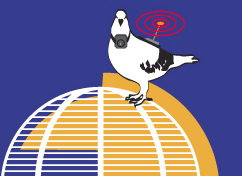Joline Blais
Visitor
|
Beyond the Commons3: Webs of Trust - 2006/05/16 13:15
Webs of Trust
While grounded stories and indigenous networks break colonial scripts by renegotiating our relations to the Land and to each other, Webs of Trust can help us renegotiate relationships to other Beings.
As if to answer the need for a stronger sense of connectedness, the past few decades have seen an explosion in online social networks. From the WELL to Slashdot to Friendster, the appeal of belonging to a community has attracted countless newbies to cyberspace.
Fortunately, electronic networks have emerged that begin to approach the nuance of indigenous relationships. Electronic “webs of trust”, for example can be used to confirm the online identities of people who have met face-to-face to exchange encryption keys. Encryption keys are digital signatures that confirm identity. Unlike ink signatures, they are almost impossible to hack. At a time when ID cards are routinely forged, when identity theft is common, and when online avatars proliferate, these real-time encounters anchor the relationships built upon digital means of communication. Individual encounters slowly evolve into dependable social networks, into “webs of trust.”
Other Webs of Trust develop in the context of projects that rely on consensual rather than hierarchical political structures. The photo site Flickr, blog-tracker Technorati, and social bookmarking tool del.icio.us connect people with similar interests via emergent tagging systems called “folksonomies.” Instead of relying on top-down categories such as the Library of Congress's classification scheme, folksonomies rely on ordinary users to "tag" photos, Web sites, and other artifacts with descriptive words of their own choosing; unlike hierarchic taxonomies, folksonomies allow individuals to define the terms of their cultural production and to join communities of similar interest by searching for relevant tags like "environment," "ipod," or "eagle."
When these communities of interest begin collaborating on projects, they produce not only social ties but economic ones that challenge current market-based, profit economics. The open source movement—where coders and hackers help to build community-based, grass roots alternatives to Microsoft Office (OpenOffice), Blockbuster Video (BitTorrent), and Random House (eBooks)—has devised an economic model based on community input and goals rather than the corporate oligarchies so brilliantly mapped by theyrule.net. Building on this model of distributed creativity, The Pool, an online environment for sharing art, code, and text, tracks the relationships between its members based on projects on which they have collaborated.
These emerging network initiatives challenge the individualism that makes us easy prey to capitalist ventures by rehearsing, in digital spaces, Daniel Quinn’s definition of tribal living: (In Beyond Civilization) groups of people who depend on each other—rather than on corporations—for their livelihood. These consensual, open, gift-based economies, while seemingly fragile, approach the kinds of sustainable economies that have ensured the survival of indigenous peoples for tens of thousands of years. While profit economies seem to have a strong hold on our worlds, they depend on our attention, desire, labor, money and political structures. Without constant and intensive input from us, they collapse.
All we have to do to reclaim our communities and our lands, is to turn away from corporations and toward each other.
Indigenous prophecies from the Amazon to the Andes, from the Pacific Northwest to the Himalayas share related stories of reconciliation following great conflict and devastation of the earth, a reconciliation based on grassroots networks that unite eagle and condor, North and South America. According to recent research a “second superpower” is already emerging. In the words of James F Moore, from Harvard’s Berkman Center for Internet & Society: “Many people desire a superpower that speaks for the interests of planetary society, for long-term well-being, [one] that encourages broad participation in the democratic process.” This new superpower is not a nation, but rather, “a new form of international player, constituted by the ‘will of the people’ in a global social movement made up of millions of people concerned with a broad agenda that includes social development, environmentalism, health, and human rights.” Moore points to blog trackers as tools for summarizing the emergent “global consciousness of the second superpower,” and insists than an open web, one that is, “open peer-to-peer communication, is at the heart of the second superpower.”
The project In the Presence of the Sacred attempts to build a local storybraiding circle that combines "grounded stories", "indigenous networks" and "webs of trust". For more about this project see above link and my reply to Wabanaki Project in this forum
|
